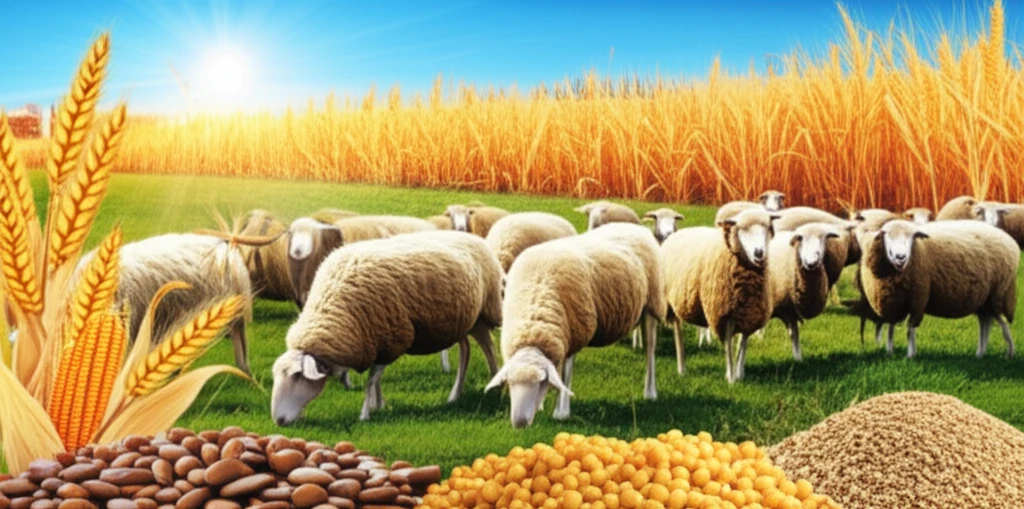
Unlock Your Sheep's Potential: The Surprising Benefits of Supplementing Maize Husk Diets
"Discover how strategic feed choices can dramatically improve the health and market value of your livestock, turning overlooked resources into profitable outcomes."
For farmers in developing countries like Ethiopia, raising sheep is a vital part of their livelihoods. These animals aren't just livestock; they're a source of income and food security, essential for household consumption and generating revenue.
However, maximizing the potential of these flocks often hinges on nutrition. Traditional diets can sometimes fall short, leading to less-than-ideal growth and carcass quality. This is where innovative feeding strategies come into play, turning readily available resources into opportunities for improved productivity.
One such resource is maize husk, a common agricultural byproduct. While often overlooked, maize husk can be a valuable component of sheep diets, especially when treated and supplemented correctly. Recent research from Bako, Western Ethiopia, sheds light on how to optimize maize husk-based diets to unlock superior growth and carcass characteristics in Horro sheep.
How Can Treated Maize Husk and Supplements Transform Sheep Farming?

The study, conducted over 90 days, focused on Horro sheep, a breed known for its adaptability and economic importance in the region. Researchers explored the effects of treating maize husk with urea and supplementing it with varying levels of a concentrate mix composed of nougseed meal and wheat bran. This mix was chosen for its balanced nutritional profile, offering a boost to the often-lacking nutrients in maize husk alone.
- Increased Body Weight Gain: Supplemented sheep exhibited significantly higher daily body weight gain and final body weight compared to those fed solely urea-treated maize husk.
- Improved Carcass Characteristics: Supplementation led to heavier hot carcass weights, better dressing percentages, and larger rib eye muscle areas, all indicators of improved meat yield and quality.
- Enhanced Nutrient Intake: The addition of supplements boosted the overall digestible nutrient intake, ensuring that sheep received a balanced diet to support optimal growth.
Transforming Sheep Farming Through Strategic Nutrition
The insights from this study offer a promising pathway for farmers looking to enhance their sheep farming practices. By strategically incorporating urea-treated maize husk and tailored supplements into their feeding regimens, farmers can unlock the full potential of their flocks, leading to improved productivity, higher quality meat, and ultimately, greater economic returns. This research not only provides practical guidance but also underscores the importance of continuous innovation in agriculture, turning overlooked resources into valuable assets for sustainable farming.
